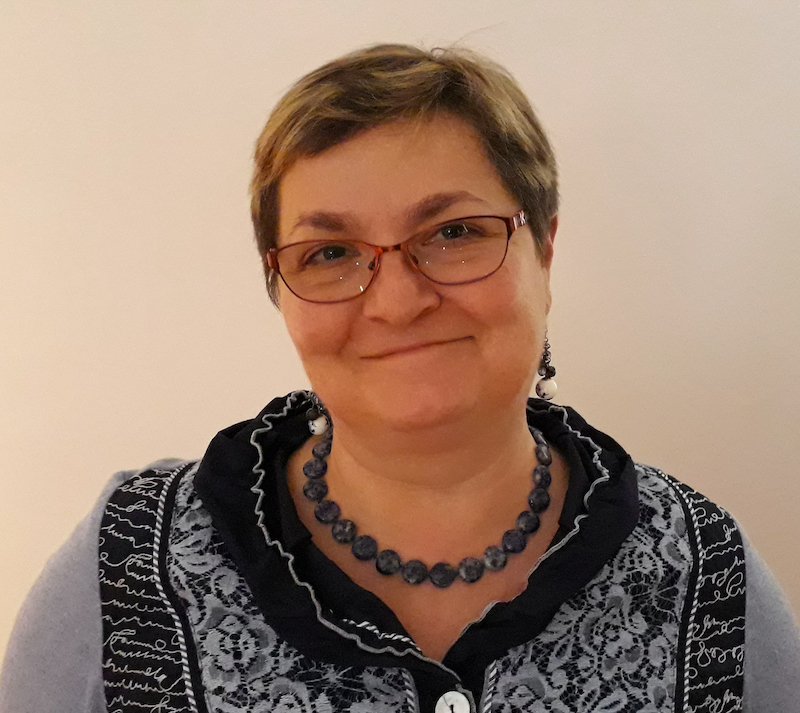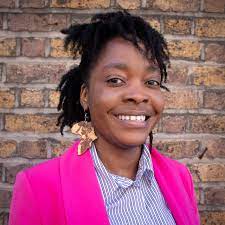Team
The Secretariat is a team of organizers, leaders, educators, researchers, practitioners from different countries across Europe. We coordinate and carry out ECON’s strategies and plans towards our shared vision. Click on each of the names to read about their biographies and roles.
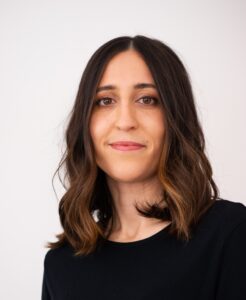 Marina Tota, Executive Director, Italy
Marina Tota, Executive Director, Italy
Is ECON Executive Director responsible for leading strategic organizational development and network building. She is an organiser, activist, educator and researcher who believes in people’s power to create a just and regenerative society.
She has a background in psychology and education and about 10 years’ international experience in coordinating transformative trainings, campaigns and projects with civil society groups, organisations and movements for social and environmental justice. Originally from Italy, she has lived and worked most of her life in “in between” spaces, communities, countries, and cultures. She worked with Actionaid’s Global Platforms in Africa, Asia and Central America and Europe coordinating political trainings, participatory research, and developing the capacity of activists, organisers, volunteers, to lead organizing campaigns for climate justice, gender justice, and human rights. She contributed to the establishment of networks of activists and artists such as Activista Ghana and the African Creative Action Network.
She is committed to build relationships and intersectional solidarity for grassroots-driven systemic change.
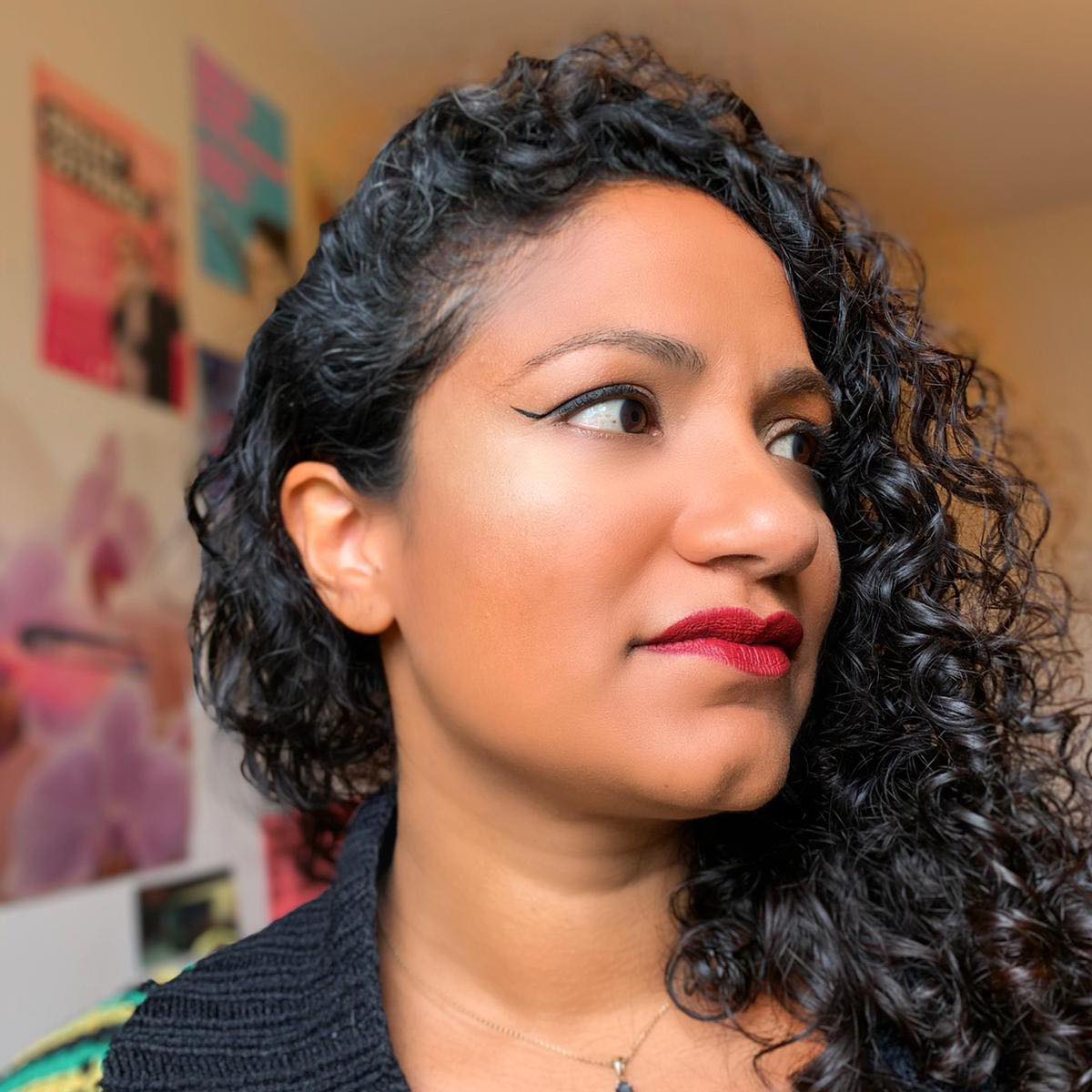
Sasha Josette, Director of Organizing, UK
Is ECON’s Director of Organizing. She has 20 years’ experience in campaign communications and community organising with a focus on building organising practises and effective communications strategies around the climate crisis. This includes; participatory policy, community wealth building, political and organising strategies to challenge the rise of ecofascism, and political education embedded in a practise of collective care. Her work is rooted in working class communities closest to the pain of the climate crisis, (for example, ex-mining towns, towns with declining high streets, and towns with high rates of unemployment and poverty).
She is Director and co-founder of Breathe: community organising for climate justice, co-founder and board member of the World Transformed Festival; co-founder of The Political Education Project; manager of national digital community organising team of The Labour Party Community Organising Unit (including 2019 general elections); she worked for 20 years in campaign communications consultancy with a range of organisations including on violence against women, policy and research, sex worker and addiction, independent news and progressive campaigns for political representatives and elections.
Organising is in her bones. She sees the urgency and mobilising culture of the movement exhausting our people and our organisations. She knows it is not sustainable. She knows the solutions required are to build deep relationships with communities closest to the pain to the crisis; prioritise leadership development; create organising strategies to counter the rise of ecofascism; and embed a culture of collective care in our organising methodology and political strategy. All of this is why she co-founded Breathe: community organising for climate justice. She believes that when our local strategies for change are connected and aligned to our international partners like ECON we can win change for our people, communities and planet.
 Masha Burina, Programme Manager, Germany
Masha Burina, Programme Manager, Germany
Is ECON’s Programme Manager, a social movement organizer and educator with 15 years’ experience developing campaigns and teams committed to driving progressive change. Bridge-builder with a history of facilitating teams to build power and devise creative solutions for big problems on both sides of the Atlantic. She coordinates ECON programmes and in particular “Organizing Frontline Communities for a Just Transition”.
Consultants
Steve Hughes, Organizing consultant, US/Czech Republic
Is ECON’s Strategic Advisor and former Coordinator. Steve has 20 years of experience working as a community, union, and political organizer in both the United States and Europe. He has managed numerous multi-faceted projects and project teams, and comes to ECON with the recent experience of building a grassroots organization from a relatively low level into an increasingly sophisticated operation through a strategic focus on board development, fundraising, and building of organizational infrastructure. Immediately prior to coming to ECON he coordinated the planning and execution of the Citizen Participation University for the last two years, and his recent work has largely centered on education and training, with a goal of developing deep leadership and increasing capacity in the organizing sector in both Europe and the United States. Originally from the United States, he has strong connections to several of the community organizing networks there, and has a particular interest in fostering ever deeper levels of exchange between the organizing sectors in both places.
Gorana Jovanivic, Organizing trainer, Serbia
Is an educator and organizer from Serbia part of the training team of the European Community Organizing Network (ECON). She learned community organizing at the Harvard Kennedy School of Government Executive Education course “Leadership, Organizing and Action” by Marshall Ganz. Since then, she has held over 30 community organizing trainings in various areas, such as climate justice, women rights, patients’ rights, and democracy. One of the campaigns in which she was part of was “Bravo za mame” (eng. Bravo for mums) which fought for the law amendment to allow all mothers regular maternity benefits in Serbia. She is also a trainer of the UNICEF UPSHIFT program, as well as member and organizing trainer with the Leading Change Network (LCN).
Board
The Board is a group of five people elected from ECON members to provide strategic direction and oversee the work of the organization between the General Assemblies. The board meets every two months.
 Maroš Chmelík, CKO, Slovakia
Maroš Chmelík, CKO, Slovakia
Is the Executive Director of the Centrum komunitného organizovania (Center on Community Organizing) in Slovakia (www.cko.sk). He has seven years’ experience in the field. One of his favourite experiences connected to his work is in 2017, when Maros participated in an initiative to defeat an unpopular, far-right governor of the Banska Bystrica region. Maros was able to lead different campaigns, events, and marches against the politicians intolerance and hate, leading to the politician being defeated handily in the next election. Maros finds this to be so important because it showed that community-based action and organizing can be incredibly effective and powerful.
Maros believes that organizing is a way for people to realize their own role in big decisions and utilize their power together to influence positive change. It can also be a way for people to express their own dignity. Organizing can also help people feel that they matter and that their voices are being heard and respected. For Maros, ECON is and will continue to be a hub where a diverse set of groups can come together to exchange knowledge, expertise, and ideas. Maros also believes that ECON can shift and adjust to constantly be best meeting the needs of member organizations and community organizing in the region as a whole. Maros wants ECON to build its current capacity and increase its’ notoreity and visibility in the region.
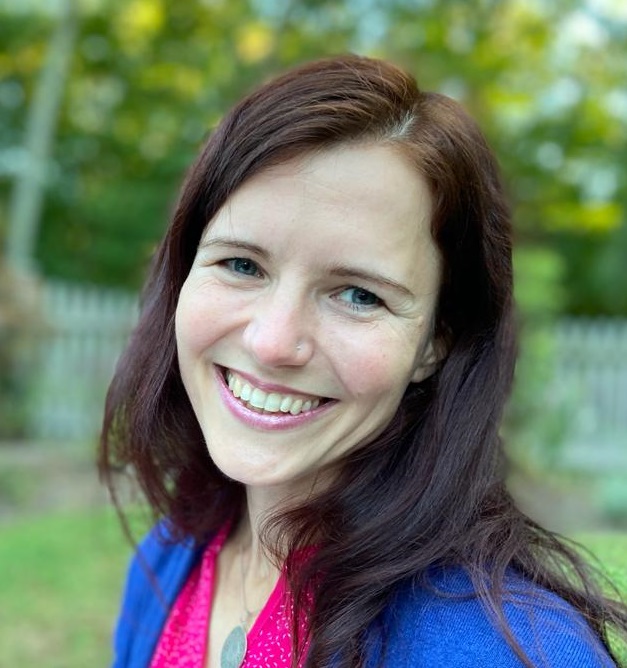
Bernadett Sebály, Organizing expert, Hungary
Is a former organizer and early-stage researcher supporting the organizing sector in Europe for years. Her organizing is rooted in a grassroots housing organization of homeless people and low-income tenants and a one-year professional development program in the U.S. with Virginia Organizing. Drawing on this experience, she played a leadership role in building the first Hungarian community organizing program with the Civil College Foundation, where she was a mentor and trainer. She contributed to laying down the theoretical foundations of the practice in Hungary by co-editing a book about the fundamentals of organizing. In addition, she coordinated Civilizáció, a Hungarian network of CSOs, during a period of repressive government measures. Since she started my PhD program, she has contributed to strengthening the organizing sector in an expert capacity. Her dissertation focuses on the relationship between movement structures and policy impact. She is particularly interested in how the combination of movement strategies, one of them is organizing, influences outcome. She is currently a Visiting Graduate Scholar at the P3 Lab at SNF Agora at Johns Hopkins University, a lab specializing in analyzing organizing processes.
She been around ECON since 2014. In the first four years, she contributed to strengthening the organizing sector through her work at the Civil College Foundation. In 2018, she went back to academia and, from then on, supported ECON as an expert. Recently, she led a two-year participatory action research process with five organizers from five countries in Eastern Europe. They documented and analyzed their organizing strategy and contributed to creating the organizing history of the region. In the last few years, she acquired relevant knowledge and analytical skills that she could use to benefit ECON and the future of organizing. Her unique position as a longtime organizer (2009-2018) and a researcher (2018- ) enables her to bring new perspectives and knowledge relevant to organizers.
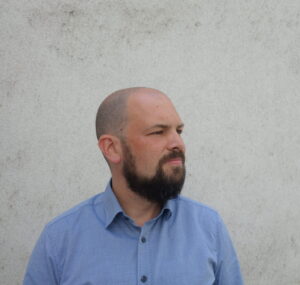
Tobias Meier, Community Organizing Germany, Germany
Tobias has been an organizer for over 15 years. He organized on several levels, starting from the ground in Berlin, Duisburg and Cologne, he has been leading campaigns on housing, education and children’s issues. He has built up two community organizations with leaders from diverse backgrounds. Working in the deprived areas of the cities helped him to understand to needs and powers of those left behind. In 2019, he took a leading position for one of the German organizing networks and developed its international networks. Working international has been one of the key aspects in his organizing and led to several exchanges and learning opportunities. He believes that these opportunities are fostered and expanded through ECON and its members.
Ildiko Baranyi, Civil College Foundation, Hungary
Is a Member of the Civil College Foundation in Hungary and Member of the Supervisory Board of the Chance Lab (Hungarian Anti-Poverty Network). She has three years experience in the field and has a background in the business world. Ildikó decided to give her extra time and energy volunteering in Hungarian communities. Initially, she got involved in her own neighborhood to help those closest to her to improve their living situations. Soon after she felt the call to do something bigger and began volunteering with the Hungarian Anti-Poverty Network where she met a former member of the ECON board who introduced her to the organization. One of her favorite experiences connects to her time volunteering with the Hungarian Anti-Poverty Network, an arm of the European Anti-Poverty Network that pushes Hungarian government to provide more support for families who are experiencing poverty. In October 2017, the organization held a week filled with events that were related to the International Day for the Eradication of Poverty. These engaging and educational events, including one which hosted a panel of experts, were able to bring in media attention that spread across to other communities and increase awareness about the issue.
To Ildikó, organizing means bringing people together who share common values to work on the expressed needs of a community and to support one another. After bringing a group together, they must go out to local events and ask people what problems they are facing. A common fear for new organizers is first approaching residents but Ildikó urges them to meet the people where they are and not to be afraid to talk to others. After attending training events, including serving as a participant in the European Community Organizing School, Ildikó became a member of ECON’s fundraising committee and had helped with projects aimed at bringing attention and funding to the network and its members. The work members of ECON do is very important to her because it strives to get to the root of systematic issues through changing the long-term instead of serving as a band-aid that only briefly addresses problems. Stemming from her work on the fundraising committee, Ildikó would like to see ECON’s communications grow so it can aid the organization in expanding its fundraising efforts. She also benefited from the international trainings and would like to increase and strengthen those opportunities for the members of the network. While she is Hungarian, Ildikó first and foremost identifies as a European and is awestruck by this colorful and creative region and hopes her work with ECON can help unite it.
Siphiwe Moyo, Communities Against Racism, Ireland
Siphiwe is a community worker originally from Zimbabwe, based in Ireland for more than 7 years working mostly on refugee integration and racial justice. I have over five years of experience with international protection for voluntary and professional development organisations. Sha has deep understanding of the challenges and complexities involved in providing support and assistance to vulnerable populations in various countries and she has successfully implemented numerous projects aimed at promoting human rights, advocating for gender equality, and improving access to education and healthcare for marginalised communities. She is a board member of the UNHCR Refugee Advisory Board and actively contribute to discussions and decision-making processes regarding refugee protection and assistance.
Additionally, she has collaborated with various NGOs and government agencies to develop comprehensive policies and programmes aimed at addressing the specific needs of refugees and asylum seekers. She has an Honours Community and Youth Development degree and a Master’s in Refugee Integration and Social Inclusion, both of which have equipped her with a deep understanding of the challenges faced by marginalised communities. Through her academic background and practical experience, she has developed a strong commitment to promoting inclusivity and social justice. She is passionate about leveraging her expertise to create a more equitable society where everyone, regardless of their background, can thrive.
General Assembly
The General Assembly is ECON’s highest decision making body where all members are invited once per year to strengthen the network, elect the board, review our reports and plans, and have strategic conversations and decisions on the direction of ECON.
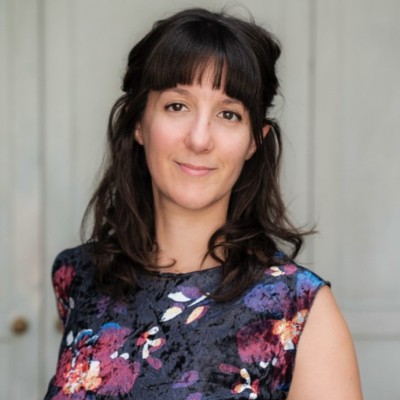 Masha Burina, Programme Manager, Germany
Masha Burina, Programme Manager, Germany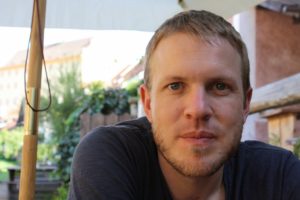
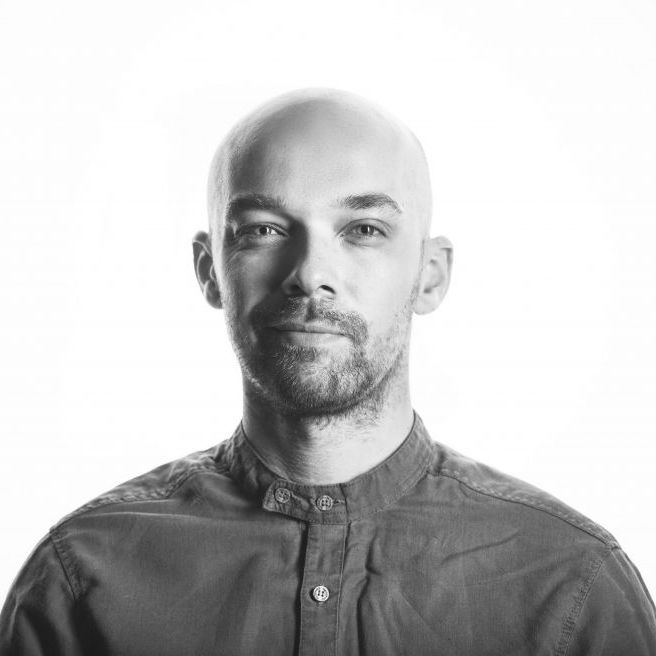 Maroš Chmelík, CKO, Slovakia
Maroš Chmelík, CKO, Slovakia